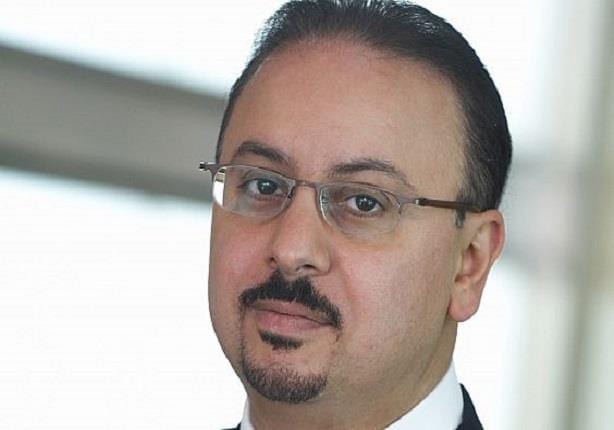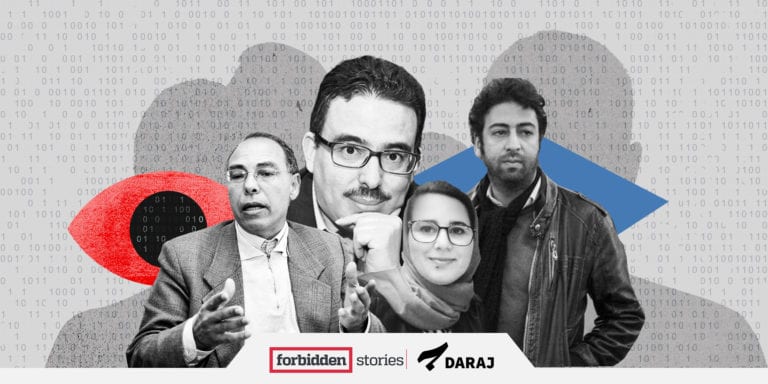Despite the Egyptian and Saudi allegations about the depth of their relationship and their alliance, events behind the scenes seem to reveal otherwise. Recent leaks reveal Saudi Arabia’s purchase of the Israeli Pegasus program from the private NSO company to monitor the phone numbers of multiple Egyptian ministers, starting with Prime Minister Mostafa Madbouly and ending with the spokesman for the Egyptian Foreign Ministry Ambassador Ahmed Hafez, passing through the Ministers of Justice, Communications, Finance and Foreign Affairs as well.
Leaks under the Pegasus project [a collaborative investigative project in which more than 80 journalists from 17 press institutions, including Daraj, participated, coordinated by Forbidden Stories and Amnesty International’s Security Lab] revealed that the Saudi authorities spied on several Egyptian numbers belonging to government ministers.
The leaks and documents under the Pegasus Project did not specify the goal behind the targeting, and therefore it is not possible to know for certain why those ministers in Egypt were tapped. However, the time period during which they were targeted has implications, since most of them were monitored at the end of March 2019, when most of the Arab countries were preoccupied with the Arab Summit in Tunisia.
The leaks included the numbers and names of many Egyptian leaders, but the investigative team was not able to verify all of them, since security forces are constantly changing their phone numbers.
Still, we were able to verify a few of these numbers, and it should be noted here that the existence of these numbers in the leaks confirms their targeting, but it may not necessarily mean that the phones were totally monitored.
On this basis, it has been confirmed that the authorities in the Kingdom of Saudi Arabia have wiretapped:
Mostafa Madbouly: the Egyptian Prime Minister since 2018. He also carried out the duties of Acting Prime Minister between 2017 and 2018. He previously held the position of Minister of Housing, Utilities and Urban Development (2014-2019) with a doctorate in architecture having graduated in 1997.
This is in addition to holding several prestigious and important positions, most notably: Chairman of the Board of Directors of the General Authority for Urban Planning in the Ministry of Housing, Utilities and Urban Communities between 2009 and 2011.
Mohamed Maait: Minister of Finance since 2018. Between 2016 and 2018, he held the position of Deputy Minister of Finance for Public Treasury Affairs. He holds a PhD in Actuarial Science, graduating in 2003.

Hossam Abdel Rahim: Minister of Justice since 2018. He served as the head of the Court of Cassation and the Supreme Judicial Council in 2014 for a year. He was also the head of the values court and a member of the Supreme Elections Committee during the process of supervising the popular referendum on the 2014 constitution. He holds a Bachelor of Laws after graduating in 1966.
The judiciary plays a crucial role in Egypt, as one of the most important pillars of the state to maintain the existing order and refute any potential change.
The judiciary, in fact, was a major problem that the Muslim Brotherhood faced during their short term. The Brotherhood even issued a decree to reduce the retirement age at the judiciary from 70 to 60 years, which would have removed around 3000-3500 judges from their positions, in a move described as an attempt by the Brotherhood to dismiss the longest-serving judges who are the most loyal to the rule of former President Hosni Mubarak. The amendments to that decree also included restricting judges’ political discourse and the right to strike.
These amendments sparked outrage among judges who took to the streets in late May 2013, prior to the July 3, 2013 coup led by Field Marshal Abdel Fattah al-Sisi.
Yasser Al-Qadi: Former Minister of Communications and Information Technology. He held senior management positions in his 30-year career in the information technology sector. Among the most prominent positions he occupied were:


a- Regional Director of HP International in Africa and the Middle East (and served as the company’s CEO in Egypt).
b- The CEO of the Information Technology Industry Development Agency (ITIDA) of the Ministry of Communications and Information Technology.
c- Managing Director of the first telecom operator in Egypt “Orascom IIS” (1994 – 1999).
d- General Manager of “Al Jeraisy” Company in the Kingdom of Saudi Arabia and Kuwait (1991 – 1994).
Al-Qadi was not a minister when he was targeted by the Kingdom with Pegasus, which raises question marks about the reason behind his targeting.
Sameh Shoukry: Minister of Foreign Affairs since 2014, that is, in the first government after Sisi’s presidency. Shoukry previously held several diplomatic positions, most notably Egypt’s ambassador to the United States of America (2008-2012).
All this is in addition to Ambassador Ahmed Hafez being targeted, the spokesman for the Egyptian Foreign Ministry.
From outside the government, the Egyptian politician Moussa Mustafa Moussa, who has been the head of the Ghad Party since 2005, was also subjected to Saudi monitoring. It is worth noting that Moussa was the only candidate who submitted his candidacy at the last minute to face President Sisi in the Egyptian presidential elections in 2018.
The Arab Summit in Tunisia:
The 30th edition of the Arab Summit was held in Tunisia on March 31, 2019, and it is likely that it was the main distracting event that allowed Saudi Arabia to target most of the Egyptian ministers during that period in particular.
Several dramatic events took place during the summit, most notably the Emir of Qatar, Tamim bin Hamad, leaving the summit and Tunisia without giving his speech, after attending the opening session. That session had included a speech given by the Egyptian Secretary-General of the League of Arab States, Ahmed Aboul Gheit, who criticized the “interference of neighbors”, specifically Turkey and Iran, in the internal affairs of the Arabs. Gheit considered that this contributed to exacerbating regional crises and creating new problems, and accordingly, he stressed the rejection of “all these interventions and their ambitions and plans.”
Although it was more than likely that bin Hamad left in response to Aboul Gheit’s words, the official Qatari authorities have not issued any official statements explaining the reason for bin Hamad’s departure. Although some heads of state were confirmed to have been targeted, the investigation team was unable to ascertain whether Sisi was as well.
Therefore, the most prominent question remains, why were the Egyptian ministers wiretapped despite their absence or direct involvement in the Arab summit? Are there internal Egyptian reasons of concern to the Kingdom that prompted the country to target them?
Internal events
Internally, several developments and events emerged during that period, most notably:
1- A tripartite summit between President Sisi, Jordanian King Abdullah II, and Iraqi Prime Minister Adel Abdul-Mahdi on March 24, 2019.
2- The foreign ministers of Egypt, Jordan and Iraq meeting to discuss the security situation in the region on the sidelines of the Arab Summit on March 29, 2019.
3- Al-Sisi ratified Law No. 8 of 2019 (on March 30, 2019), known as the Black Sand Law, which gives a license to the “Minister of Electricity and Renewable Energy to contract with the Nuclear Materials Authority and the Egyptian Black Sand Company, regarding the search for exploration, mining and concentration of economic minerals and by-products of black sand ore…”
4- Mostafa Madbouly issued a set of decisions governing the new Egypt Sovereign Fund, a group of assets worth 200 billion Egyptian pounds (then $11.2 billion) wholly owned by the Egyptian government, which was established as a tool to contribute to the development of the country’s sustainable economy.
5- Preparations began for the referendum on constitutional amendments in Egypt, which took place from 20 to 22 April 2019, on the basis of which “constitutional amendments that consolidate long-term repression” were approved, according to Human Rights Watch, as they allow the election of the President of the Republic for a period of six years and for more than two consecutive terms, while the old constitution stipulated that he be elected once and for a term of four years.
Was one of these events a motive for the kingdom to electronically spy on the ministers of its ally?
Behind the Scenes of Saudi-Egyptian relations!
Historically, Saudi-Egyptian relations have gone through many ups and downs between alliance, cooperation, apathy, competition, and open conflict. All this fluctuation in the relationship contributed to the persistence of a kind of mutual suspicion between the two parties, even at the height of their alliance.
In this context, Gregory Avtandilian, a researcher and university professor specializing in Middle East affairs, wrote in an article in the Arab Center Washington DC on February 9, 2021, that Egypt and Saudi Arabia are strategic allies in the Middle East, since they share common interests and similar perceptions of threats.
The kingdom appreciates Egypt’s great military power, which helps protect a part of the strategic waters that are important to both sides i.e. the Red Sea. As for Egypt, Saudi Arabia is the most important economic funder and workplace for Egyptian workers. The two also share resistance to political openness and interference in their internal affairs, according to Avtandilian.
Despite the strong alliance between the two countries, especially after President Abdel Fattah al-Sisi assumed the presidency in 2014, Saudi Arabia pursues a policy of distrust of allies and enemies alike.
Behind the scenes of this alliance, there are sometimes divergent political interests, according to Avtandilian, who believes that Egypt resents being the poorest ally, which forces it to avoid criticism and subordination to the kingdom’s policies in most cases. As for the Kingdom, it fears Egypt’s ambitions to restore its historical role in leading the Arab region, despite the transfer of power in the region in recent decades to the Gulf states.
The Egyptian street was protesting in 2016 due to the issue of the islands of Tiran and Sanafir, after the Egyptian House of Representatives agreed to grant sovereignty over the two islands to Saudi Arabia within the framework of the agreement to redraw the maritime borders between the two countries.
A judicial dispute also took place between the Supreme Administrative Court, whose ruling nullified the agreement, and the Urgent Matters Court, which nullified the ruling of the Supreme Administration, while the Supreme Constitutional Court intervened to separate the two courts and decided that the agreement between the two countries was not legal.
Does International Law Prohibit Espionage?
International law experts differ on whether wiretapping is criminalized in international law. Three main views emerge in this context:
1- The prevailing view is that there is no general rule prohibiting espionage under international law, even in times of peace. Thus, it is evaluated case by case.
2- The other view is that espionage is prohibited under public international law because these activities constitute a violation of sovereignty and the principle of non-interference.
3- The third opinion considers that espionage falls in a gray area of international law, as it is not criminalized or prohibited and is not explicitly and clearly justified.
Some experts argue that the vagueness surrounding espionage arises because states have no real interest in regulating the act, because doing so would hinder their ability to protect their national security.
Other experts believe that some countries see spying as a means and an opportunity to strengthen their alliances and develop cooperation with other countries. This is why states, whether as perpetrators or as victims, are seldom inclined to debate or speak publicly about this issue and why so many states ignore the suspicions and even evidence of wiretapping from other states.
Media organizations participating in the “Pegasus Leaks”:
Forbidden Stories – Le Monde- Suddeutsche Zeitung -Die Zeit – Washington Post – The Guardian -Daraj – Direkt36 – Le Soir – Knack-Radio France – The Wire – Proceso – Aristeui Noticias – OCCRP- Haaretz – PBS Frontline
Read Also:







